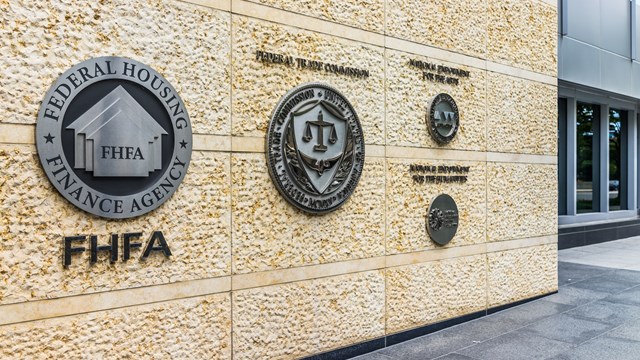
Preparing the annual budget is by no means an easy task. Those charged with preparing cooperative, condominium or HOA budgets will soon begin reviewing costs, gathering data and projecting expenses for the coming year. Communities, businesses, individuals, families, groups and organizations of all kinds must have a budget in place in order to navigate both everyday expenses and unexpected costs, while maintaining a certain life or business style. A well-defined, well-written budget is a powerful financial tool allowing funds to be saved and/or allocated for specific costs and projects; budgeting is a way to estimate expenses and allow for those funds to be available when needed.
Budgeting for co-op, condo or HOA communities actually involves not one, but two budgets, each covering a specific range of expenditures. Recurring (and more or less predictable) expenses such as taxes, utilities, staff salaries, insurance and maintenance are the line items most frequently found in the operating budget. Major projects, and long term plans, and emergency funds are budgeted for in the capital budget,and those items will vary, depending on the individual community’s needs, wants, and means.
“You have to be realistic about what those fixed costs are going to be,” says Amanda C. Brady, CPA, a manager at the accounting firm of Wilkin & Guttenplan, P.C., which has offices in East Brunswick, New Jersey and in Manhattan. “You need to look at what your replacement fund is. You know that you have to have insurance, you know that you have to have certain items, that you have to have a managing agency. You have to look at what those fixed costs are in order to be very realistic about how you're going to come up with what your maintenance fee is going to be for the year,” she says.
While expenses are divided into operating or capital expenses, income is generally obtained only from HOA dues or fees, and any fines or penalties incurred and repaid by residents. When any member of the board is unclear or confused on which budget should be assigned which cost, it can be difficult for the board to function properly and to uphold the fiduciary duties for the community. That's why it's important for every board member to have at least a working familiarity with the way their community's budgets function and interact.
The Budgeting Process
Reviewing the existing budget and formulating a budget for the upcoming year is an annual duty for the co-op, condo or HOA board. Property managers play a central role in the budget, and the process starts with them. The manager usually prepares the draft budget, reviews it with the treasurer, and the finance committee, and the board. “Most of the property managers do the leg work on it,” says Stephen Beer, CPA, a partner with the Manhattan-based certified public accounting, auditing and management consulting firm Czarnowski & Beer, LLP. By working with managers, Beer says, accounting pros can gain a clearer, more specific picture of what a building or association needs to budget for and how to plan accordingly.
After any changes and adjustments are made, the board will likely hold a budget workshop meeting for additional fine-tuning, and then formally approve the budget in a final board meeting. “The board should make sure they understand the needs of the owners, get community and owner feedback, so that they know when they're reviewing that budget, they're taking into consideration and listening to what their owners want them to do, necessarily depending upon where their costs go, they necessarily can't do everything, but at least they listen and they can try to do what they can. Ultimately the budget is approved by the board,” says one accountant.
The responsibility for creating an annual budget generally falls to the association’s president, secretary, and treasurer, with input and assistance from the accountant and attorney. “The treasurer is usually responsible for seeing that the draft budget is prepared, and reviewed. He participates with the committee, his finance committee, and talks with the owners,” he continues.
“The initial process normally is started in September/October,” says Beer. “The agents—they call it budget season—where they spend their time doing the budgets one after the other. So they would prepare it—and it may or may not go to the accountant for review, that’s the proper way. Then it may or may not go to a board president or a board member depending on who the financial person is and then ultimately it gets presented to the board at a board meeting for final revisions. Sometimes it gets adopted. Sometimes it takes more than one meeting.”
Most boards will rely on the accountant or CPA to work with them more closely at budget time. He recommends working about three months out before an approved budget is expected to allow sufficient time for fine tuning. His rule of thumb will work for association on either a calendar year or a fiscal year timetable.
Matthew Kuisle, PE, RS, PRA, client services director with Reserve Advisors, a national company which provides reserve studies in the New York metro area, recommends starting the budgeting process even earlier when possible. “Budgets are often created by managers, boards, and committee members and these individuals often consult accountants, attorneys, professional reserve analysts and other experts for guidance. Boards typically vote to approve the budget at an annual meeting of the membership.”
As a 'best practice' Kuisle recommends keeping budget folders for upcoming years to understand proposed projects and contracts for each year and the changes that might be required in each budget. “A reserve study can be done as a first step to help set the budget for capital repairs and replacement projects,” he says. “This approach can help anticipate the expense of large reserve projects and allow ample time to build the reserves.” Kuisle suggests using a professional engineer for the reserve study to help eliminate any big surprises for the budget.
Most accountants recommend the use of a reserve schedule formula to further indicate when a repair or replacement project will mostly likely be needed. Reserves are usually calculated by using a formula that takes into account the useful life of an item, the remaining useful life, and the replacement cost component. “And this information is required to be on the proposed budget for every condominium association and for those HOAs that have statutory reserve funds,” says Kuisle.
Kuisle also recommends allocating funds for near term services, while keeping a strategic plan in place for the future. “We see many energy-saving options for buildings today. Everything from lighting modifications to geothermal heating options can lower energy usage and costs over time. These modifications generally require an initial capital investment however, so it is important to keep these future expenses in mind when budget planning.”
How associations handle their reserve studies tend to be a good litmus test of how good their budget practices are as a whole. The basic principles of a good process involve planning for the future as much as possible, and then adjusting to changes in an efficient manner.
“An association that's planning ahead very well is an association that's going to be realistic about what items should be included in the replacement fund study,” says Brady. “Some associations, you'll find, that they'll ask the engineer to leave certain items out, that they don't feel that they're ever going to be replaced, but that may not be what the engineer would recommend. So, those associations could find themselves in trouble if they're not funding for certain items that they should be,” she says.
While these suggestions and recommendations may sound like a lot of work, 75 to 80 percent of the budget is normally reoccurring expenses, like utilities, insurance, and lawn maintenance. It often helps to look at the history of both the projected income and expenses. If the income remains stable, allowing for 5 to 10 percent increase in expenses will usually adequately allow for any inflation. Repairs are difficult to estimate, but the best boards allocate a healthy amount of cash for unforeseen circumstances, and then carry over any leftover into a discretionary budget for the following year.
Factoring in Capital Expenses
Repairs, wind or storm damage, painting, roofing, pool resurfacing and other restoration projects are paid from the capital budget. When a board is underfunded (as many were in the recent recession) special assessments may be required to fund capital projects, however, most boards will take a proactive stance to avoid special assessments whenever possible. So who is best qualified to help determine future cost for big projects in the budget?
“Contractors and service providers can help with annual cost,” says Kuisle, “but an independent reserve analysis can best determine future annual cost and times of big projects. The independent analysis should arm a board with lots of information that can help define the scope of projects and even negotiate better contracts and save the association money.”
Many accountants favor reviewing the past expense history and obtaining cost estimates from contractors or engineers to better determine the estimated cost of future expenses and projects. Vendor services should be monitored throughout the year. If a board or manager finds that vendors are tacking on extras to bills, they should be reviewed to make sure they're there for a reason and part of the original contract. Associations may struggle with whether to postpone work if unforeseen costs enter into the equation. Unless it's an immediate concern, many times associations will benefit from splitting costs over a span of a few years, rather than ignore them altogether. By contacting vendors early, a board may also negotiate a better rate with the current provider, or have time to shop for better pricing, particularly if contracts are up for renewal.
Some buildings have gotten into the business of offsetting costs by drawing their own revenue. “Some of them have cell towers on their roofs depending on the kind of association that it is. In the city, you'll see that they're cell towers on roofs. Verizon has paid them to come into the association and let them lay the cable and everything. So some of the associations have gone out and found these other ways of generating revenue. Even with some of the solar panels, those types of things. I don't know that it's a windfall but it definitely is something that absorbs some of the cost that the association has,” says Brady. Brady says in cases like these, associations and cooperatives have to be careful of their tax status if they're generating revenue.
Budgeting for Mother Nature
In addition to the general 60-90 days of working capital every association should also have some 'rainy day' savings, Kuisle says. By being proactive and budgeting for emergencies that do not materialize, a board may build a surplus. While this can be a nice problem to have, once a surplus is accrued the board and management team have a legal and moral obligation to show those funds in the annual statements and financial reports. How the surplus is handled depends on the individual property, and the needs of the community.
An association may opt to have excess funds rolled into working capital, or transferred to the reserves. There is always the option of refunding the surplus to the residents, but often that is not the best course of action, and everyone agrees refunds are a rarity. Some associations may vote to save the surplus in an interest bearing account, roll it over to the following year, or allocate the surplus funds for a special project.
“One of the ways that you can do that well could be to look over a five-year average and budget whatever the five-year average is. In certain years you're going to have higher amounts, certain years you're going to have lower amounts, and assuming that in a year where you budgeted $20,000 for snow and you only spent $10,000, if you carry that forward to the next year, and then the next year you have $30,000, well, you lucked out and evened out from year to year,” says Brady.
Whether surplus funds are saved, rolled over, or spent on special projects any community managed well enough to have a surplus is sure to benefit from the extra funds.
Anne Childers is a freelance writer and a frequent contributor to The New Jersey Cooperator. Editorial Assistant Tom Lisi and staff writer Christy Smith-Sloman contributed to this article.






Leave a Comment